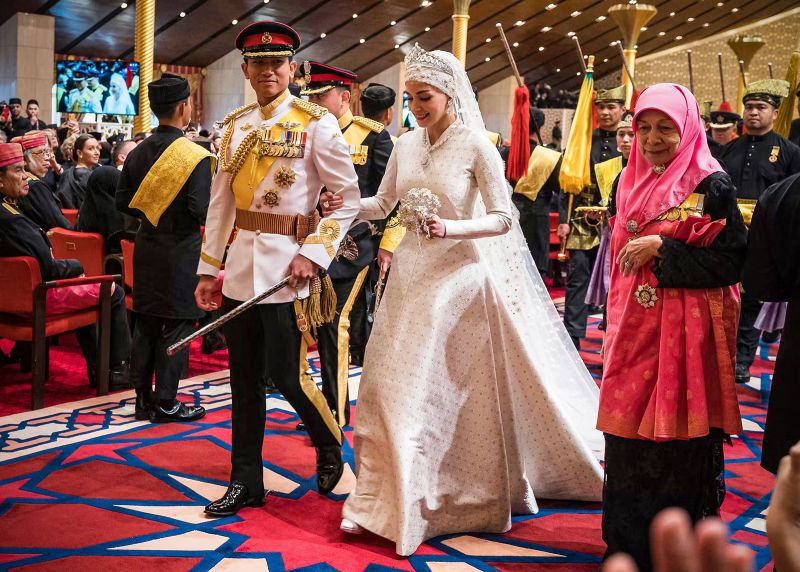In the majestic setting of the country known as the Abode of Peace, the Kingdom of Brunei held its breath as Prince Abdul Mateen – the tenth prince of the Sultan Hassanal Bolkiah, tied the knot in a grand royal wedding. The lavish occasion brought the tiny, oil-rich country to a standstill, with a nation flushed with joyful anticipation and overwhelming emotion.
Brunei, in Southeast Asia, which already enjoys a high degree of international attention due to its abundant natural resources and unique political setup, found itself propelled onto the world stage with amplified fervor. The royal wedding was an occasion of sheer opulence and extravagance, provoking worldwide interest and casting an intrigue-filled spotlight onto the tiny sultanate.
Prince Abdul Mateen, an active military officer with a strong global social media following, has been dubbed as one of the hottest royals in the world. His nuptials were destined to be an event that firmly connected tradition and culture with a modern, global-facing outlook.
The nation came to a standstill, not just from the perspective of daily routines and administration, but also symbolically. There was an electrifying aura of anticipation and excitement, along with a deep respect for the royal family’s long-standing tradition and heritage. Preparations were vast and meticulously planned, ranging from the grand architecture to the gold-dusted delicacies served at the ceremonial feast, highlighting the nation’s significant cultural wealth.
The grandeur of the occasion was reflected in the details. The bride gracefully donned a traditional gold-embroidered attire, while the dashing Prince wore an impeccably tailored military uniform, proudly representing his operational service to his country. Thousands of locals and international visitors marveled at the grand royal parade. The couple’s ride in a golden carriage through the capital, Bandar Seri Begawan, added an enchanting aspect to the extravaganza.
Though the royal wedding was a private affair, with only selected guests personally invited, every citizen felt an implicit part of the celebration, bearing witness to the spectacle through various broadcast and social media platforms. Screens across the nation broadcast the ceremony, enabling the public to feel a sense of shared celebration with their beloved royal family.
The wedding also revealed the integral role of religion in Brunei. The ceremony was conducted following Islamic rituals and customs, ending with a majestic feast in the royal palace. The Sultan, a devout Muslim, has always highlighted the importance of Islam in governing the personal and societal life of Brunei. The marriage ceremony of Prince Abdul Mateen was no exception to this steadfast adherence to tradition and the intertwining of state matters with religion.
On a deeper level, the significance of this royal wedding lay not just in its immediate ceremonial opulence, but in how it reflected Brunei’s duality as a traditional yet modern society. The lavish spectacle was a vivid demonstration of Brunei’s commitment to its history and heritage, yet it also signaled the sultanate’s readiness to feature its appeal to younger generations and the global audience.
As the royal couple took their vows, this paradisal nation indeed came to a standstill, lost in the grandeur of a wedding that celebrated not just the union of two people, but the lasting cultural richness, potent traditions, and forward-looking aspirations of Brunei. A symbol of pride, the event will be etched in the hearts of the people of Brunei forever.




